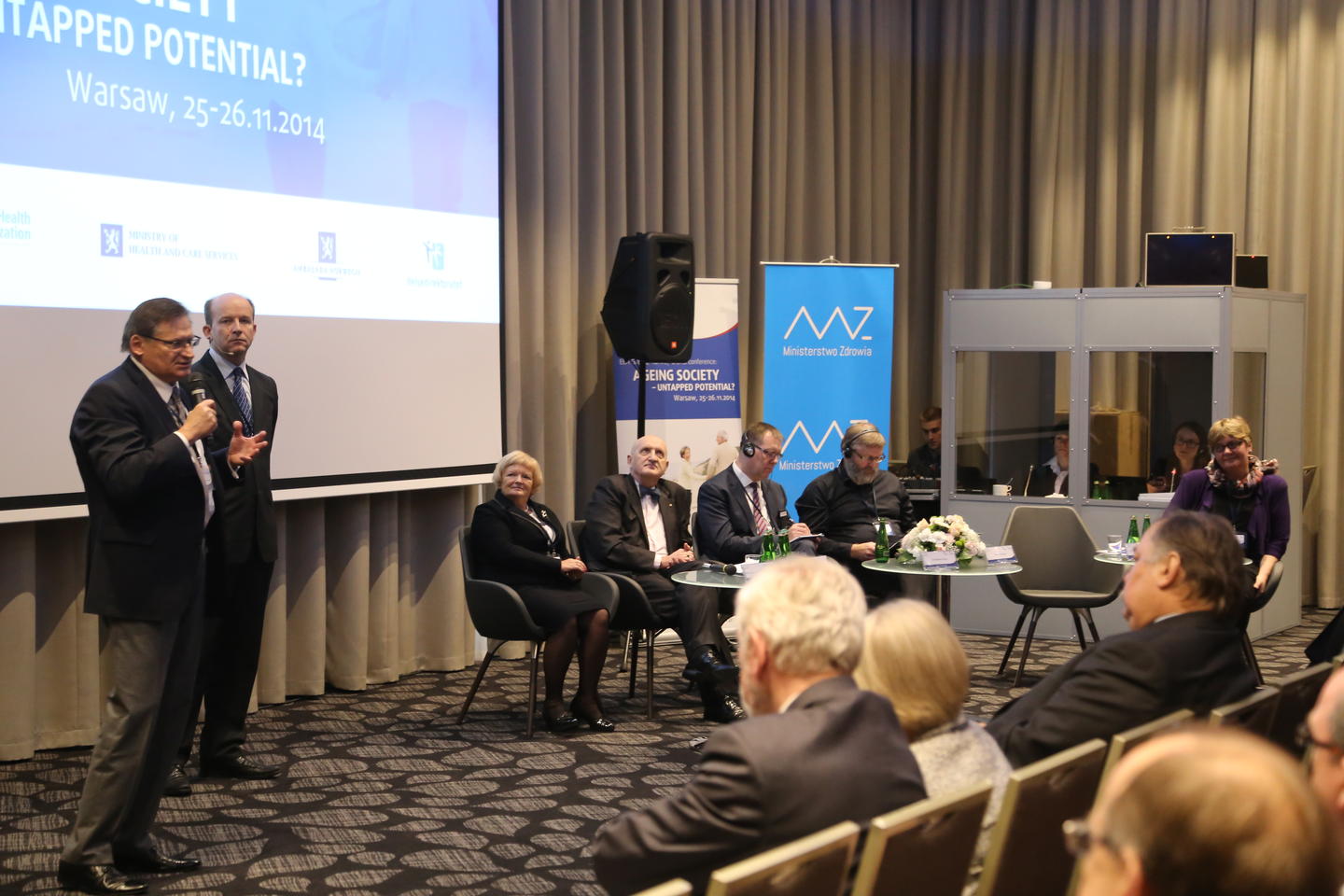“Ageing is not a problem, it´s a challenge. We all want to get older in a healthy and happy way,” said Slawomir Neumann, Secretary of State of the Ministry for Health of Poland as he opened the two-day conference 'Ageing Society – Untapped Potential' financed by the EEA and Norway Grants.
In 2050, over 30% of the Polish population is expected to be over the age of 65, around two-times larger than the population under the age of 15. These demographic predictions are not limited to Poland alone. With increased life expectancies and declining birth rates, societies across Europe are becoming older – developments which will undoubtedly have a vast impact on current welfare and pension systems.
New generations, new needs
Despite the challenges, this demographic change can potentially be a benefit for society at large.
“We should consider older people as an asset,” said Norwegian Ambassador to Poland, Karsten Klepsvik, emphasising the value of experience and knowledge.
Healthy and active older people can contribute to their communities to a great extent, whether it is through work life participation, civil society, third age universities or other means. However, as the older population grows larger, current approaches need to be adapted.
“The ageing population is diverse,” said Klepsvik.
“We are talking about three generations between the ages of 55 and 100 who differ in both capabilities and needs.”
Noting the demographic diversity, Steinar Barstad, Special Director at the Ministry of Health and Care Services of Norway stressed the importance of meeting new needs.
“The new generations of senior citizens will have higher life expectancies, as well as more education and resources. They will have better foundations to care for themselves, but will at the same time place high demands on their communities, influencing markets, sectors and institutions, trade and economy, demand and consumption. An 80 year old in 2013 is not the same as an 80 year old in 2000.”
Projects underway
Iceland, Liechtenstein and Norway support public health in Poland through two programmes. The Polish 'Development and Better Adaptation of Health Care to Demographic and Epidemiological Trends' programme receives €58 million from the EEA and Norway Grants, and the Polish 'Reducing Social Inequalities in Health' programme is funded with a €18 million contribution from the Norway Grants.
The conference saw presentations of several newly-approved projects under both programmes. Among the projects is a collaboration between the Polish Society for Health Programmes (PSHP) and the Norwegian Centre for Integrated Care and Telemedicine.
“We are very excited to work with our colleagues from Tromsø,” says Artur Pruszko, Programme Director at PSHP. The project will draw from Norwegian experiences of telemedicine and examine how such practices could be effectively implemented in Polish health care services.
Young and Old
One of the main themes highlighted at the conference was the importance of shifting the focus from reactive care to preventive action by promoting healthy lifestyles from early on.
“We want the elderly to be active and healthy. In order to achieve that we need to start with the youngest and address their needs so they stay active and healthy until their retirement age,” said Neumann. He further underlined the importance of identifying and learning from the drawbacks and negligences of the past with help from healthcare professionals, mentioning smoking and inactive lifestyles as examples.
“It is essential that we foster new trends and new ways-of-thinking encouraging people to enjoy active lives.”
Read more about the Polish 'Reducing Social Inequalities in Health' programme
